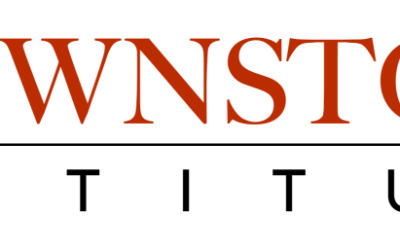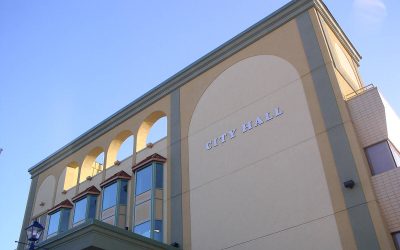Bill C-69, the new proposed federal legislation deals with environmental assessment changes. It requires that “traditional knowledge of the Indigenous peoples of Canada” must be considered when assessing projects. In effect, this legislation will place “traditional knowledge” on an equal plane with science.The bill, however, does not define “traditional knowledge.”
A Quebec deputy minister questioned the fact that the bill did not define “traditional knowledge”, and added his opinion that the bill must be clear about how “traditional knowledge” is to be used alongside scientific knowledge. Professionals who plan and assess projects need this information to be effective.
The Deputy Minister’s rational question and observation was met with criticisms from Indigenous leaders, claiming he was being offensive – and even racist. Quebec politicians immediately issued an apology and retracted the letter.
So, what is “Indigenous traditional knowledge”?
As it happens, I got a description of what traditional knowledge is on CBC Radio during the course of an interview with the head of The University of Manitoba’s new “Indigenous Knowledge” Department. She explained that “traditional knowledge, which is the same thing as “Indigenous science, ” has been vital for the survival of Aboriginal people. A hunter-gatherer culture depended on information about the movement of animals, changes in the weather, and the medicinal properties of plants, for instance. She claimed that this important information has been passed on orally through many generations. Because aboriginal culture had no written languages, “knowledge keepers” had special status in these societies.
There is no question that the CBC guest was accurately portraying the value of accumulated wisdom. It is truly remarkable that a group of people with little technology or literacy not only survived but flourished on such a cold and hostile part of North America. Information that was transmitted orally through generations obviously played a major role in their survival.
The speaker went on to explain that Indigenous knowledge had a spiritual dimension as well as an informational component Only certain people, who had to be Indigenous, could access the knowledge, or could be entrusted with it. According to this guest, mystical concepts like the “medicine wheel” were involved. In her conception, knowledge was more than just factual information that was being passed through the generations. It was a combination of information, knowledge, and spiritualism. In fact, both the keepers and the knowledge itself had magical or mystical powers that could not be understood by non-Indigenous people–or indeed even by Aboriginal people who had not been gifted with the keepers’ spiritual powers.
By now, it is clear that the information through magical or spiritual component attributed to “traditional knowledge” and “indigenous science” disagrees with the accepted definition of scientific knowledge. In the case of science, a critical perspective and the ability to test hypotheses is crucial. Hypotheses are most often rejected by science.
Scientists collect data and analyze it. Drawing on their expertise they test hypotheses about what they expect to happen. The results are published in a recognized science journal for all to see. They are carefully scrutinized and critiqued by other scientists from around the world. Only after that critiquing process has been completed can the hypothesis be considered legitimate – and even then, it will be challenged if new information becomes available
But that process is not possible with “Indigenous knowledge and science”. A “keeper” claims special powers, and only he or she can understand the information. The information is not published in a way that others can criticize. Moreover, the knowledge keepers cannot be questioned because only certain people of his or her race or ethnic group have the ability to understand the information.
Bill C-69 even caters to this odd fetish secrecy by making it illegal for anyone in possession of any “traditional knowledge” from divulging it, except with the written consent of the keepers of the knowledge. Pre-contact Indigenous people had no writing, so it is obvious that some of these requirements have been recently devised.
It is clear that “Indigenous traditional knowledge” or “Indigenous science” are very different from science as we know it – the science that was crafted over thousands of years from Aristotle through Galileo, Newton and Einstein.
This is not to say that “Indigenous traditional knowledge or science” is not important. Every oral culture has passed along information from one generation to the next that is vital for its own survival. North American Indigenous people are no exception. Information pertaining to weather patterns, flora and fauna, and the like can be very valuable to engineers and scientists who assess projects. In most cases this information will be gratefully received by them. But, the mystical and secret parts of “traditional knowledge” alone disqualify it as science.
One can imagine situations where engineers and scientists responsible for a complex project must compare notes and attempt to come to an agreement with one of these “knowledge keepers.” Where that keeper relies on magic and mysticism, the engineers and scientists rely on the science of theories, numbers, algorithms, and logic. The two don’t mix. The professionals are responsible for the safety of Canadians, and it would be wrong to compromise that safety for the sole reason of not offending a special interest group under the guise of “reconciliation”.
Thus, science and “traditional knowledge” are two very different things. The magical and mystical parts of “traditional knowledge” simply do not belong in scientific discussions any more than do the religious beliefs of the engineers and scientists belong in their scientific papers.
It would also be wrong for Indigenous groups to use “Indigenous traditional knowledge” for commercial purposes. I strongly suspect that this is what is happening.
Bill C-69 purports to change the definition of “science” for political purposes.
To do so would be both reckless, and wrong.



